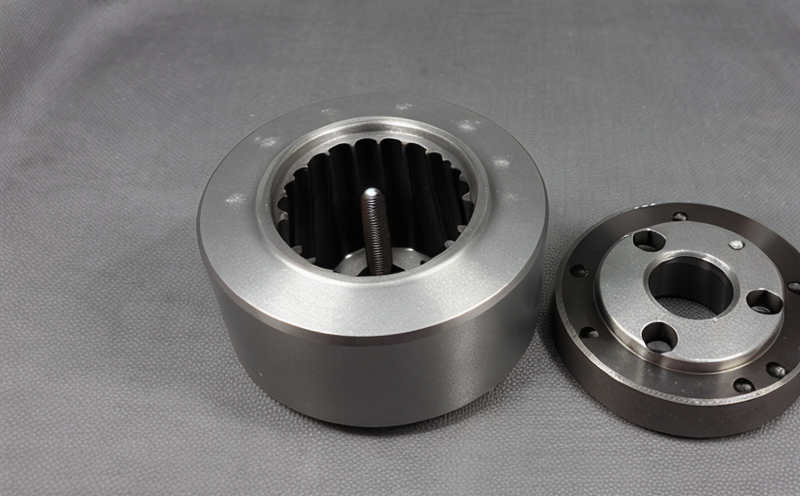Powder Metallurgy & Additive Manufacturing Material Testing
Powder metallurgy and additive manufacturing (AM) are two advanced manufacturing techniques that have significantly impacted the materials industry. Powder metallurgy involves compacting and sintering small particles of metal or other materials into a solid mass, while AM uses digital models to print three-dimensional objects layer by layer using powdered metals as raw material. Both processes are critical in producing high-performance components for various sectors such as aerospace, automotive, medical devices, and electronics.
In powder metallurgy, the quality of materials is paramount due to its direct impact on the final product's performance. Powder metallurgy materials undergo rigorous testing to ensure they meet stringent specifications. These tests include mechanical property assessments like tensile strength, hardness, and fatigue properties. Additionally, chemical composition analysis ensures that the material contains the correct elements in the right proportions.
Additive manufacturing introduces unique challenges in terms of quality control. The process involves multiple layers of powder deposition and melting, which can lead to inconsistencies if not managed properly. Therefore, AM materials are subjected to extensive testing to verify their structural integrity and mechanical properties post-process. This includes non-destructive testing (NDT) methods such as X-ray fluorescence for elemental analysis and metallographic examination.
At [Lab Name], we provide comprehensive material testing services tailored specifically for powder metallurgy and AM processes. Our state-of-the-art facilities are equipped with advanced instruments capable of performing a wide range of tests on raw materials, intermediate products, and finished goods. From microstructural analysis to mechanical property evaluation, our experts ensure that every aspect of your product development process is meticulously examined.
We understand that both powder metallurgy and AM require precise control over several variables during manufacturing. These include particle size distribution, porosity levels, and grain structure formation. By analyzing these parameters early in the process, we can identify potential issues before they become costly problems later on. Our testing methodologies align closely with international standards such as ISO 15408 for powder metallurgy and ISO/ASTM 52900:2020 for AM materials.
With our expertise in this field, we offer a complete suite of tests designed to meet your specific needs. Whether you are developing new alloys or optimizing existing processes, our team will work closely with you throughout the testing phase to provide actionable insights that drive innovation and improvement within your organization.
Industry Applications
| Industry Sector | Application Example |
|---|---|
| Aerospace | Casting complex geometries for turbine blades and other high-strength components. |
| Automotive | Producing lightweight, durable parts through powder metallurgy techniques. |
| Medical Devices | Creating custom implants using additive manufacturing methods. |
| Electronics | Bonding electronic components with precision powder metallurgy processes. |
| Military | Manufacturing wear-resistant parts for use in harsh environments. |
| Consumer Goods | Producing high-strength components for sporting goods and tools. |
Quality and Reliability Assurance
Ensuring the quality and reliability of materials is crucial in powder metallurgy and additive manufacturing. At [Lab Name], we employ a comprehensive approach to testing that covers all aspects of material performance, from raw material analysis to final product inspection.
For powder metallurgy, our testing protocols focus on assessing the purity level, particle size distribution, and homogeneity of the powders used in the manufacturing process. These tests are essential for ensuring consistent mechanical properties across batches. We also conduct microstructural analyses using techniques like scanning electron microscopy (SEM) to examine grain structure formation and identify any potential defects.
In terms of additive manufacturing, our testing methods include evaluating layer adhesion strength, surface finish quality, and dimensional accuracy. Post-process inspections involve non-destructive evaluations such as ultrasonic testing or radiography to detect internal flaws that might not be visible on the exterior surface. These tests help guarantee that parts meet required specifications before being incorporated into larger assemblies.
Competitive Advantage and Market Impact
Investing in advanced material testing services can give your company a significant competitive edge. By staying ahead of industry trends and regulatory requirements, you ensure that your products consistently meet or exceed customer expectations. This commitment to quality not only enhances brand reputation but also fosters long-term relationships with customers.
In today's fast-paced market, companies must continuously innovate while maintaining strict quality standards. Our material testing services support this goal by providing reliable data that informs decision-making processes at every stage of product development. By leveraging our expertise in powder metallurgy and additive manufacturing, you can accelerate time-to-market for new products without compromising on safety or performance.
Moreover, adhering to international standards like ISO 15408 for powder metallurgy and ISO/ASTM 52900:2020 for AM materials demonstrates your company's commitment to excellence. This can help establish trust among stakeholders, including suppliers, regulators, and end-users. In an increasingly globalized marketplace, such certifications serve as a powerful tool for expanding into new markets while maintaining high standards of quality.





